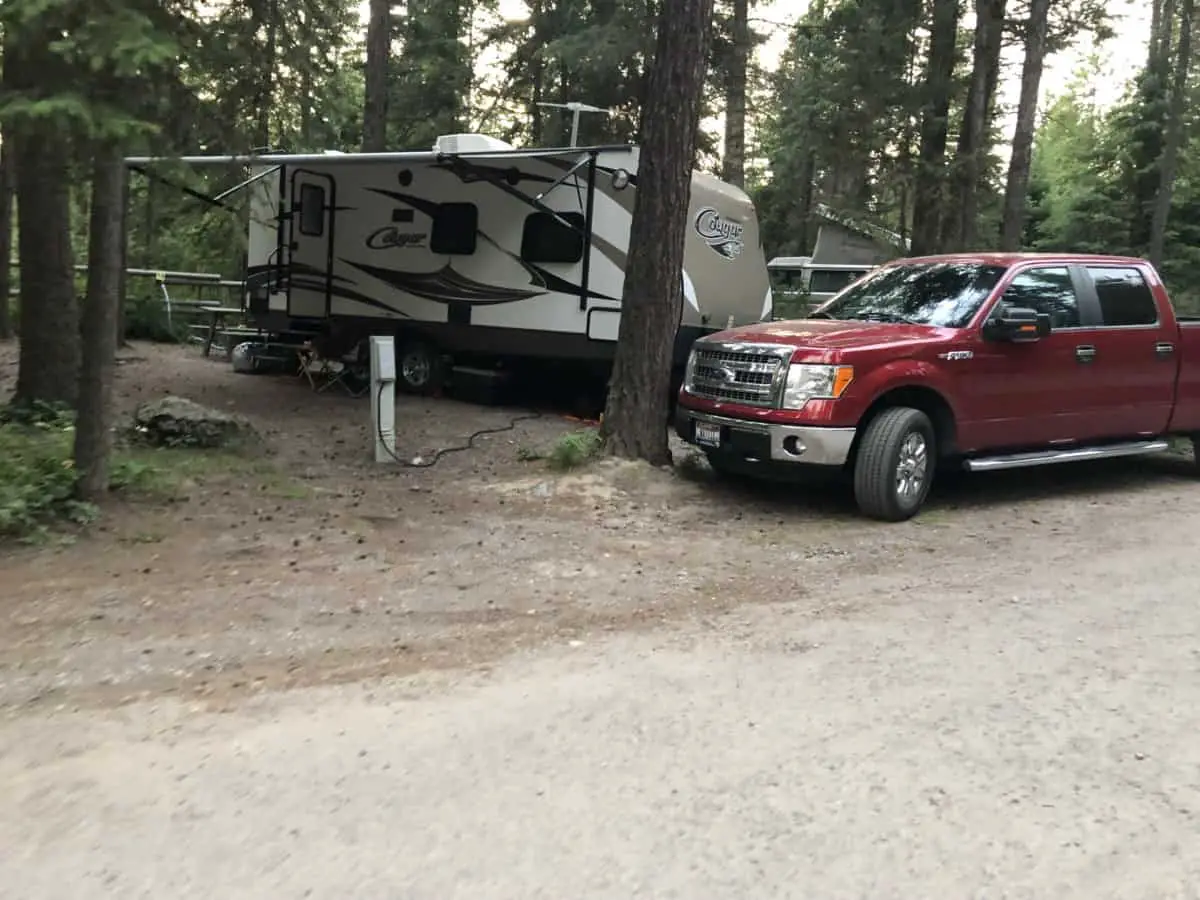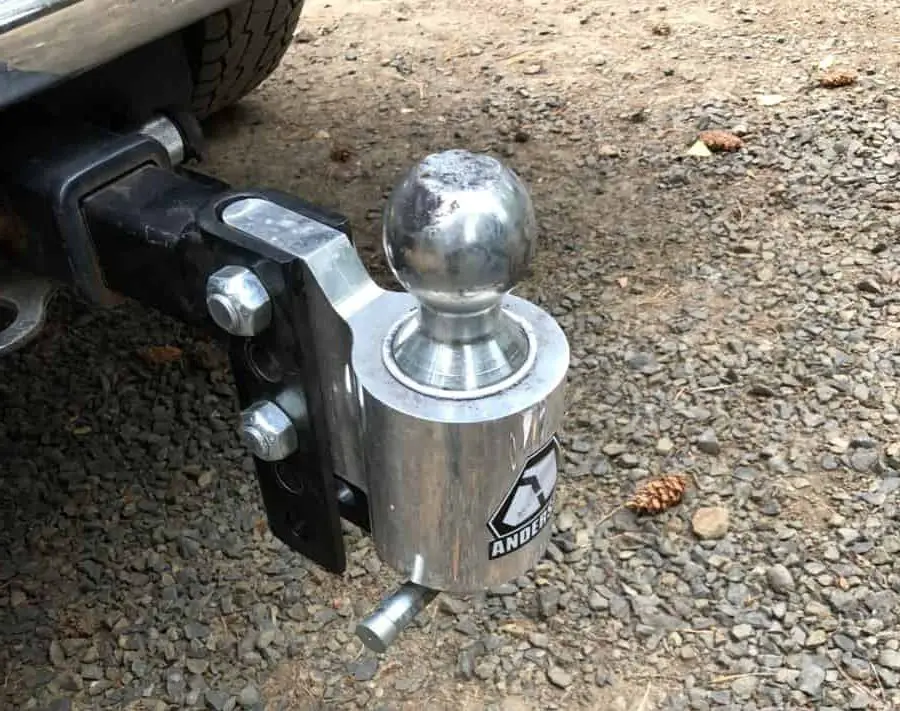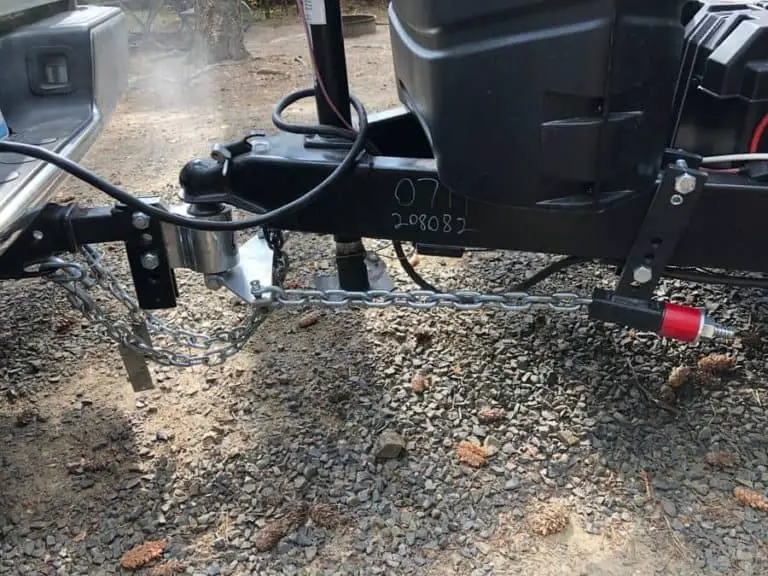Does a ¾ Ton Truck Need Weight Distribution Hitch?
Whether you’re a full-time RVer who’s constantly hauling your big rig on the highway, or simply occasionally towing a trailer for work, having the right hitch and truck is extremely important. ¾-ton trucks are an excellent middle-of-the-road option that has ample towing capacity and gets decent gas mileage. Combine that with a weight-distribution hitch, and you have a force to be reckoned with.
While a ¾-ton truck definitely stands to gain from the addition of a weight-distribution hitch, it isn’t a requirement. Weight distribution hitches make a more comfortable towing experience, but it isn’t required unless the thing you’re towing weighs half as much as your truck.
Weight distribution hitches can get used on any size truck, but they’re especially used on trucks that are a ½ ton or less. ¾-ton trucks can benefit from a weight-distribution hitch, but they’re listed as optional in most owners’ manuals. If you’re wondering if your ¾-ton truck needs a WDH, this article will have the answers.
Do You Need a Weight Distribution Hitch on a 2500?
In terms of yes and no, you don’t have to have a WDH on a 2500. A 2500 is the numerical title for a ¾-ton truck and is used with Chevy’s, GMC’s, Dodge’s, and most trucks aside from Ford. A 2500 ¾-ton truck is stronger and more durable than ½-ton trucks and anything smaller, and isn’t required to have a weight-distribution hitch.
¾-ton trucks are designed with stronger rear axles and frames and do a better job of automatically distributing a trailer’s weight. For anything up to 18,000 pounds, most manufacturers don’t require weight distribution hitches on their ¾-ton trucks, but they do recommend them.
Does My F250 Need a Weight Distribution Hitch?
Just as you don’t need a weight-distribution hitch for your 2500 truck, you also don’t need one with the F250. The F250 is Ford’s version of the 2500 and is a ¾-ton truck just like the 2500. Therefore, just as other ¾-ton trucks aren’t required to have a WDH, the F250 isn’t either.
However, just as all towing trucks can benefit from a weight-distribution hitch, so can the F250. A WDH will make so that your rear end of your truck doesn’t dip when you hook a camper or trailer up to it and will evenly distribute the weight of your trailer along the entire length of your F250. They make for a more comfortable, safer, and smoother towing experience.
Do I Really Need a Weight Distribution Hitch?
If you’re driving a ¾-ton truck, a 1-ton truck, or anything larger, you aren’t required to have a weight-distribution hitch. However, there are a few exceptions to this rule. Remember, most models will need your weight distribution bars to be removed when backing up into a spot, so you may want to purchase one that allows you to remain hitched up if you do a lot of backing up constantly. You can read more about the subject of reversing with a weight distribution hitch here.
For Towing Professionals
If you tow trailers and RVs for a living, investing in a weight-distribution hitch is an excellent idea, no matter what size your truck is. Weight-distribution hitches increase the safety of the towing process. It will reduce the chances of you being involved in an accident because you had to swerve out of the way of something, or got hit from the side by a heavy wind.
Additionally, you might be held liable for causing an accident if you don’t have a weight-distribution hitch and were the cause of the accident. Paying for a WDH is a small price to pay for a safer ride and to cover your butt in case of an accident.
If You Need Sway Control
Most weight-distribution hitches also have sway control, which is an added bonus for extra safety. Swaying is the number one reason for accidents involving a ¾-ton truck hauling a trailer. If you can mitigate that risk and give yourself a smoother towing experience in the process, having a WDH seems like a no-brainer.
If Your Trailer is Half the Weight of Your Truck
While weight-distribution hitches aren’t required regardless of what you’re towing, they’re highly recommended in certain cases. Specifically, if you have a ¾-ton truck and you’re towing something that weighs more than half the total weight of the truck. Remember, a ¾-ton truck doesn’t actually weigh ¾’s of a ton. Most trucks this size weigh between 8,000 and 11,000 pounds.
Therefore, if you’re driving a ¾-ton truck that weighs 10,000 pounds and you’re towing something that weighs more than 5,000 pounds, you should have a weight-distribution hitch. It isn’t required, but it’s highly recommended.
What Kind of Hitch is Best for a ¾ Ton Truck?
Ultimately, it’s entirely up to you as far as what kind of hitch you want on your ¾-ton truck. Most trucks this size will have a towing capacity of 8,000 to 15,000 pounds or even more. As such, there’s a good chance that you’ll tow trailers and RVs that weigh as much if not more than the truck itself. Therefore, having a weight-distribution hitch is an excellent idea.
Our favorite model is the Andersen No Sway Hitch, and the Equal-i-zer hitch is a great option for heavier trailers.
If you don’t want a weight-distribution hitch, you should make sure to check your owner’s manual for the towing capacity of your truck. As long as you install a hitch capable of towing at least the equivalent of your vehicle’s capacity, you’re good to go.
Be the first to be notified about FREE tips, hints, coupon codes, and email-exclusive information. All for FREE!








